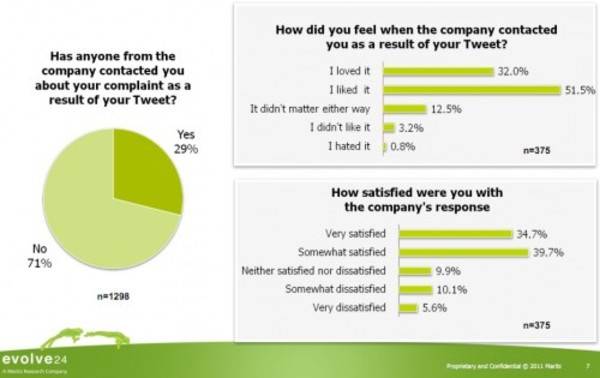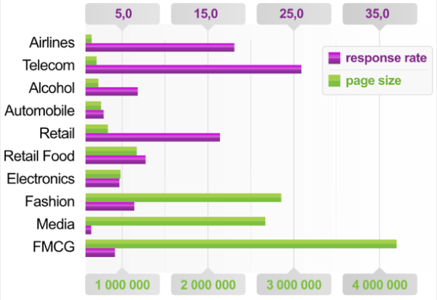Two recent studies about how companies use social media for customer support have concluded that for the most part they don’t do a very effective job at responding to complaints. And while some companies are better at listening and responding to their customers, many do a miserable job, still. It is a sad and somewhat depressing state of affairs, to be sure.

Last month the employee benefits firm Maritz surveyed almost 1300 consumers who frequently Tweet and have used Twitter to complain about a product or service recently. They found that the majority of them – 71% — didn’t receive any response to their complaints. Nada.
I guess I shouldn’t be surprised. Many companies fear Twitter and Facebook, thinking that they will be trapped in a spiral of negative comments and trolls if they try to engage their customers. Wrong. Most of us just want someone to hear us out, and let us know that our problems were heard somewhere in the corporate food chain. Getting resolution would be gravy. Take a look at this chart from the study:

Note that more than 80% of those that actually heard from their complaints were positive, and 74% were satisfied with the response. That is a lot of goodwill that you can buy there. This is a chance, as Jay Bear mentions in his analysis here, to turn lemons into lemonade and turn a complaining customer into an advocate and ally. This happened to me with a problem with a bank account at Bank of America. I was getting hit with tons of overdraft fees for one of my accounts, and within a matter of moments BofA turned me around 180 degrees, and now I sing their praises (well, at least about their social media strategy).
There are lots of example of companies who do listen: Dell is probably the poster child, as we wrote about here.
The other study is from Econsultancy in the UK. They found that on average, less than 5% of the questions posed to corporate Facebook pages get any response. Some industries have even lower rates, as you can see from the chart below (commas are our decimals for us Yanks, spaces are our commas, and FMCG means fast moving consumer goods):

As they write on their blog post, “If you want to be social and enter social media, then be social and talk to your fans, have them ask questions, do customer care there if necessary.” Exactly.

















